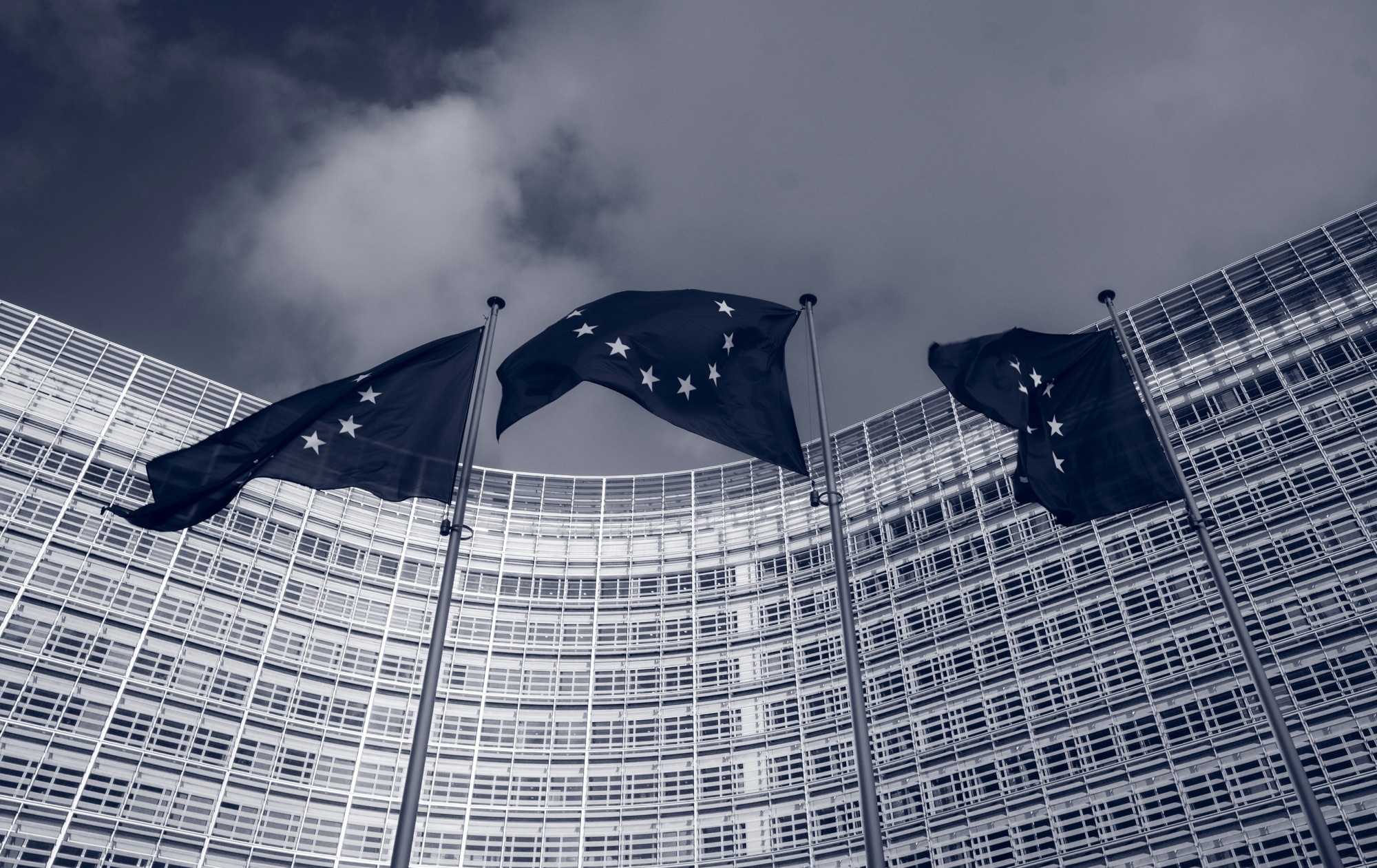The European Union (EU) is a unique political and economic entity that unites 27 European countries under a framework of shared policies, laws, and goals. While not a traditional “nation-state” like the United States or China, the EU wields considerable influence in global affairs through its collective economic might, regulatory frameworks, and soft power. As one of the largest economies in the world, a significant cultural force, and a key player in international diplomacy, the EU shapes much of the modern global order.
In this article, we will explore the economic, cultural, and military power of the European Union, examining how this transnational organization has leveraged its unity to become a global powerhouse. Despite its challenges, the EU remains a vital player on the world stage, influencing everything from trade and regulation to diplomacy and cultural exchange.
Economic Power: The World’s Largest Economic Bloc
The European Union’s economic power is one of its most significant tools of global influence. Collectively, the EU’s nominal GDP is around $17 trillion, making it the third-largest economy in the world, after the United States and China. The EU’s economic power comes from the collective strength of its member states, many of which are among the world’s most developed economies, such as Germany, France, Italy, and the Netherlands.
1. The Single Market: The Heart of Economic Integration
At the core of the EU’s economic power is its Single Market, a unified economic area that allows for the free movement of goods, services, people, and capital across its 27 member states. This integration fosters economic growth, competition, and innovation, making the EU one of the most dynamic economic regions in the world.
The Single Market has created a deeply interconnected economic system that allows companies to operate seamlessly across national borders. As a result, European firms like Volkswagen, Airbus, Unilever, and Siemens are global giants in their respective industries, competing on the world stage and exporting products and services to every corner of the globe.
The Single Market also provides significant economic benefits to EU citizens, who can live, work, and travel freely across member states without facing major bureaucratic hurdles. This mobility has helped create a more dynamic and flexible labor market, allowing the EU to compete more effectively in the global economy.
2. Trade Power and Global Trade Relations
The EU is one of the world’s largest trading blocs, responsible for around 15% of global trade. It is a major exporter of goods such as machinery, vehicles, chemicals, and pharmaceuticals, and it has established itself as a leading player in international trade relations. The EU’s Common Commercial Policy allows it to negotiate trade agreements on behalf of all member states, giving it significant leverage in global trade negotiations.
The EU has signed numerous free trade agreements (FTAs) with countries around the world, including major economies like Japan, Canada, South Korea, and Vietnam. It is also in negotiations for trade deals with other key global players, such as India and Mercosur (the South American trading bloc). These agreements have expanded the EU’s economic reach and made it a crucial player in the global trade system.
The EU’s export-driven economy benefits from its ability to access markets worldwide. The EU’s leading trading partners include the United States, China, and the United Kingdom (post-Brexit). The EU’s trade relationship with the U.S. and China is particularly significant, as both economies rely heavily on European imports of goods like machinery, chemicals, and luxury goods.
3. The Euro: A Global Currency
The euro (EUR), the official currency used by 20 of the 27 EU member states, is the second-most traded currency in the world after the U.S. dollar. The Eurozone, which consists of countries that have adopted the euro, represents a major part of the EU’s economic power. The euro facilitates easier trade and investment across Europe, eliminating the need for currency exchange between member states and contributing to economic stability within the bloc.
As one of the world’s major reserve currencies, the euro plays a crucial role in global finance. Central banks around the world hold euros as part of their foreign exchange reserves, and many international contracts, particularly in Europe and Africa, are denominated in euros. The euro’s status as a global currency enhances the EU’s influence in international economic and financial systems, giving it the ability to shape global monetary policy in conjunction with other major economic powers.
The European Central Bank (ECB), headquartered in Frankfurt, plays a key role in managing the euro and setting monetary policy for the Eurozone. The ECB’s policies, particularly its control over interest rates and inflation, have a significant impact on the global economy, as well as on the economic stability of the Eurozone.
4. Regulatory Power: The Brussels Effect
The EU is often referred to as the “regulatory superpower” because of its ability to set global standards through its regulations. This phenomenon, known as the “Brussels Effect,” refers to the EU’s capacity to influence global markets by setting stringent regulatory standards in areas such as data protection, consumer safety, environmental protection, and antitrust law.
One of the most notable examples of the Brussels Effect is the General Data Protection Regulation (GDPR), which has become the global standard for data privacy. Any company that operates in the EU or deals with EU citizens must comply with GDPR, effectively forcing global businesses to adhere to European data protection standards. Similarly, the EU’s strict regulations on chemicals, food safety, and product standards have reshaped global supply chains, as companies must comply with EU rules to access its lucrative market.
The EU’s regulatory power extends to competition law, where it has taken a tough stance against large multinational corporations like Google, Apple, Amazon, and Microsoft. The EU has imposed hefty fines on these companies for antitrust violations, influencing how global tech giants operate not only in Europe but also in other markets.
5. Challenges to Economic Unity
While the EU boasts significant economic power, it faces internal challenges that threaten its economic cohesion. The euro crisis of the early 2010s exposed structural weaknesses within the Eurozone, particularly the economic disparities between northern and southern member states. Countries like Greece, Italy, Spain, and Portugal struggled with high debt levels, slow growth, and rising unemployment, leading to calls for greater fiscal integration and financial support from wealthier member states like Germany and the Netherlands.
The EU also faces challenges related to Brexit, the United Kingdom’s departure from the EU in 2020. Brexit created economic uncertainty and disrupted trade flows between the UK and the EU, especially in areas like finance, agriculture, and manufacturing. The ongoing negotiations over trade agreements and regulatory alignment between the UK and the EU remain a source of tension.
Furthermore, populist movements in countries like Poland, Hungary, and Italy have raised questions about the future of EU integration. These movements, which often criticize the EU’s centralized decision-making and economic policies, could threaten the long-term stability and unity of the bloc.
Cultural Power: The EU’s Influence Through History, Arts, and Values
Europe has long been a center of global culture, with its history, art, literature, and philosophy influencing societies around the world. The EU, as a collection of diverse nations with rich cultural traditions, continues to be a major force in shaping global culture. The EU’s cultural power comes not only from its artistic and intellectual heritage but also from its commitment to promoting democracy, human rights, and multilateralism.
1. European Arts and Cultural Legacy
Europe is home to some of the world’s most renowned cultural institutions, including museums like the Louvre in Paris, the British Museum in London, and the Uffizi Gallery in Florence. These institutions house priceless works of art that span centuries of European history, from the Renaissance to the modern era. European artists like Leonardo da Vinci, Vincent van Gogh, Pablo Picasso, and Claude Monet continue to inspire new generations of artists and shape the global art scene.
European cities such as Paris, Vienna, Rome, and Berlin are synonymous with culture and history, drawing millions of tourists each year. These cities are cultural hubs that host international events, from film festivals to art exhibitions, further solidifying Europe’s role as a global cultural leader.
The EU promotes the preservation of its cultural heritage through initiatives like the European Heritage Label and the Creative Europe program, which funds projects that enhance cross-border cooperation in the cultural sector. These programs help protect Europe’s historical sites, promote artistic exchange, and encourage the development of creative industries across member states.
2. European Cinema and Music
European cinema has a long and storied history, with directors like Federico Fellini, Ingmar Bergman, Jean-Luc Godard, and Pedro Almodóvar producing some of the most critically acclaimed films of all time. European films have won numerous awards at prestigious international film festivals, such as the Cannes Film Festival and the Berlin International Film Festival, cementing Europe’s reputation as a leader in global cinema.
In addition to its storied cinematic history, Europe is also a hub for contemporary filmmaking. Countries like France, Italy, Spain, and Germany have robust film industries that produce both domestic films and international co-productions. European streaming platforms and film companies are also gaining prominence in the global market, offering a counterbalance to the dominance of Hollywood.
Music is another area where Europe has exerted significant cultural influence. From the classical compositions of Beethoven, Mozart, and Bach to contemporary pop and rock acts like The Beatles, ABBA, and David Bowie, European musicians have shaped the global music landscape. The Eurovision Song Contest, one of the longest-running televised music competitions, continues to draw millions of viewers each year, showcasing Europe’s diverse musical talent and promoting cross-border cultural exchange.
3. Soft Power Through Democracy and Human Rights
The EU’s soft power is rooted in its commitment to promoting democracy, rule of law, and human rights. As a bloc, the EU has used its diplomatic and economic leverage to promote these values both within its member states and around the world. The EU’s foreign policy emphasizes the importance of multilateralism, diplomacy, and conflict resolution, positioning it as a global advocate for peace and stability.
The EU is a strong supporter of international institutions like the United Nations (UN) and the World Health Organization (WHO), and it often works through these bodies to advance its foreign policy goals. The EU also provides significant development aid to countries in Africa, the Middle East, and Asia, using its economic power to promote sustainable development, good governance, and human rights.
Through its enlargement process, the EU has helped to spread democracy and stability in Eastern Europe. Countries like Poland, Hungary, Romania, and Bulgaria have undergone significant political and economic transformations since joining the EU, largely due to the bloc’s emphasis on democratic governance and human rights as prerequisites for membership.
4. Challenges to Cultural Unity and Integration
While the EU boasts significant cultural power, it faces challenges in maintaining cultural unity across its diverse member states. Europe’s historical and linguistic diversity can sometimes create obstacles to deeper cultural integration. Each country has its own distinct cultural identity, and some member states, particularly in Eastern Europe, have resisted certain aspects of EU cultural policies, especially when it comes to social values like LGBTQ+ rights and immigration.
The rise of populist movements and nationalist parties in countries like Hungary, Poland, and Italy has also complicated efforts to promote a shared European identity. These movements often challenge the EU’s cultural and political integration, arguing for greater national sovereignty and less interference from Brussels in domestic affairs.
Despite these challenges, the EU remains committed to fostering cultural exchange and cooperation across its member states. Initiatives like the Erasmus+ program, which allows students to study abroad in other EU countries, have helped to promote cross-cultural understanding and build a sense of European identity among younger generations.
Military Power: The EU’s Role in Global Security
While the European Union is not a military alliance, it plays a significant role in global security through its Common Security and Defense Policy (CSDP) and its cooperation with NATO. The EU’s military power is largely derived from the combined capabilities of its member states, particularly countries like France, Germany, and Italy, which have well-equipped and modern armed forces. In recent years, the EU has sought to enhance its defense cooperation and develop a more autonomous defense capability.
1. Common Security and Defense Policy (CSDP)
The Common Security and Defense Policy (CSDP) is the EU’s framework for military and defense cooperation. While the EU does not have a standing army, it can deploy military and civilian missions in conflict zones to support peacekeeping, conflict prevention, and crisis management. These missions are typically small in scale and focus on stabilizing fragile states, training local security forces, and supporting humanitarian efforts.
EU military missions have been deployed to conflict zones in Africa, the Middle East, and the Balkans, often in collaboration with the United Nations or NATO. For example, the EU’s Operation Atalanta has played a key role in combating piracy off the coast of Somalia, while its missions in Mali and Central Africa have helped to train local security forces and stabilize conflict-ridden regions.
2. The EU and NATO: A Strong Transatlantic Alliance
The EU’s military power is closely linked to its relationship with NATO, the world’s most powerful military alliance. Many EU member states, including France, Germany, Italy, and the Netherlands, are also members of NATO, and the two organizations work closely together on issues related to European security and defense.
NATO remains the primary guarantor of security in Europe, particularly in the face of threats from Russia and other external actors. However, the EU has sought to complement NATO’s efforts by enhancing its own defense capabilities, particularly in areas like cybersecurity, counter-terrorism, and military mobility.
The Permanent Structured Cooperation (PESCO) initiative, launched in 2017, is a key part of the EU’s effort to strengthen its defense capabilities. PESCO allows EU member states to collaborate on defense projects, such as the development of new military technologies, the improvement of military logistics, and the enhancement of joint military training.
3. France and Germany: The EU’s Military Heavyweights
France and Germany are the two most militarily capable countries in the EU, and they play a leading role in shaping the bloc’s defense policy. France, in particular, has a powerful and technologically advanced military, including nuclear capabilities, a large navy with an aircraft carrier, and a strong air force. France has historically been more willing than other EU member states to engage in military interventions, particularly in Africa and the Middle East.
Germany, while more hesitant to use military force, has made significant contributions to NATO missions and EU defense initiatives. Germany has one of the largest economies in the world, and its defense budget has increased in recent years as the country takes on a more prominent role in European security.
4. Challenges to Military Integration
Despite progress in enhancing EU defense cooperation, the bloc faces significant challenges in achieving true military integration. One of the key obstacles is the divergence in defense priorities among member states. Countries like France, which has a global military presence, prioritize power projection and intervention capabilities, while other member states, particularly in Eastern Europe, are more focused on territorial defense and deterrence against Russia.
There are also budgetary constraints and political challenges that limit the EU’s ability to build a more unified military force. Many EU member states have been reluctant to significantly increase their defense spending, and the political will to create an EU army or a centralized command structure remains limited.
Additionally, the EU’s reliance on NATO for security complicates efforts to develop an independent military capability. While the EU seeks to enhance its defense autonomy, it must do so in a way that complements NATO rather than duplicating or undermining the alliance’s efforts.
Conclusion: The EU’s Role in Shaping the Future of Global Power
The European Union is a unique political and economic entity that wields significant power on the global stage. Its economic strength, driven by the Single Market, global trade relations, and the euro, makes it a major player in shaping the world economy. The EU’s regulatory power, exemplified by the Brussels Effect, allows it to set global standards in areas like data protection, environmental protection, and antitrust law.
Culturally, the EU’s diverse member states contribute to a rich and dynamic global cultural landscape, from art and music to cinema and literature. The EU’s commitment to promoting democracy, human rights, and multilateralism further enhances its soft power and influence in international diplomacy.
While the EU does not have a centralized military, its cooperation with NATO and its efforts to enhance defense integration through initiatives like PESCO allow it to play a crucial role in global security. However, the EU faces challenges in maintaining unity across its diverse member states, particularly when it comes to defense priorities, budgetary constraints, and political will.
As the EU navigates the complex geopolitical landscape of the 21st century, its ability to balance economic growth, cultural influence, and military cooperation will be key to its continued relevance as a global power. Whether in trade negotiations, international diplomacy, or global security, the European Union will remain an indispensable player in shaping the future of the world order.




